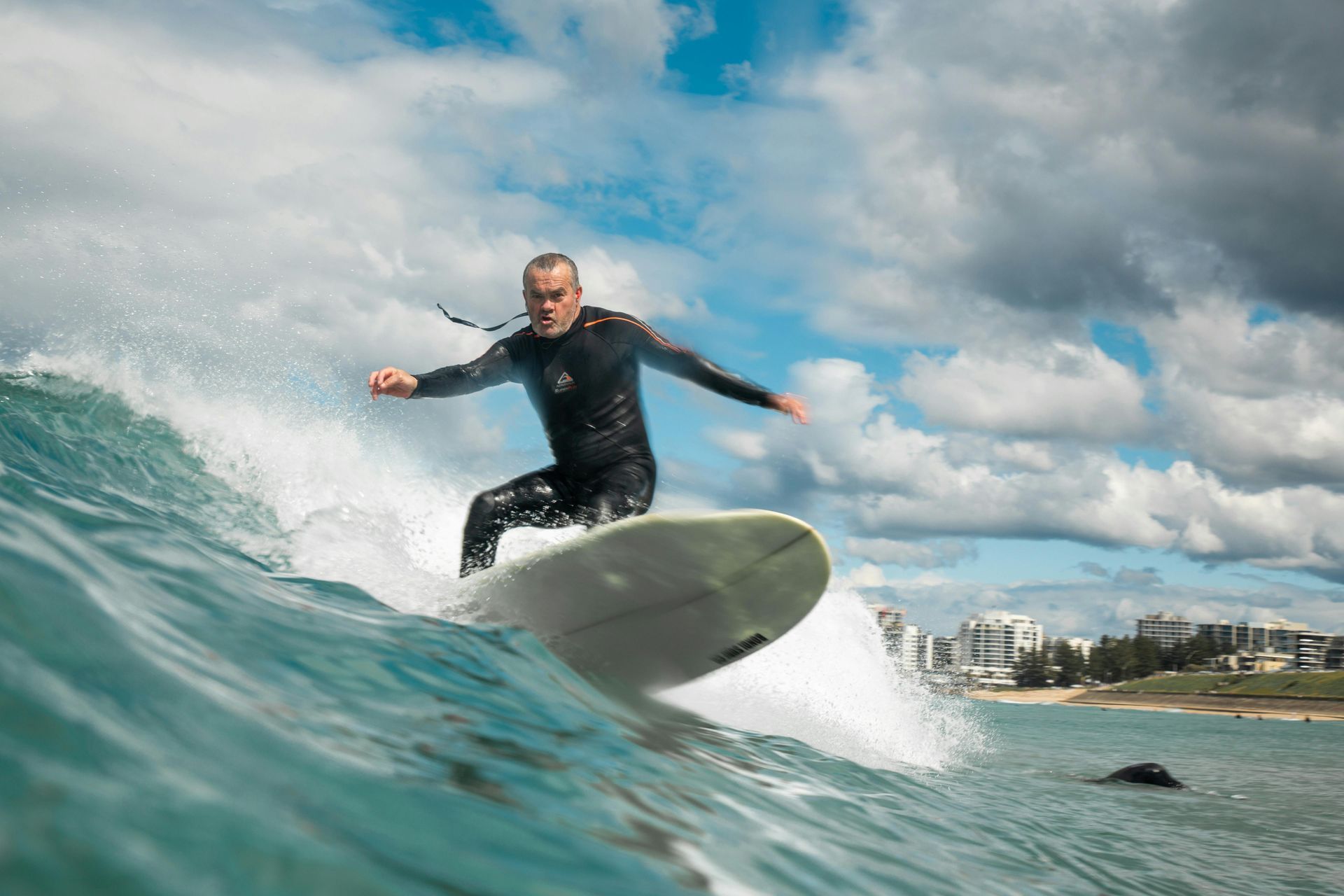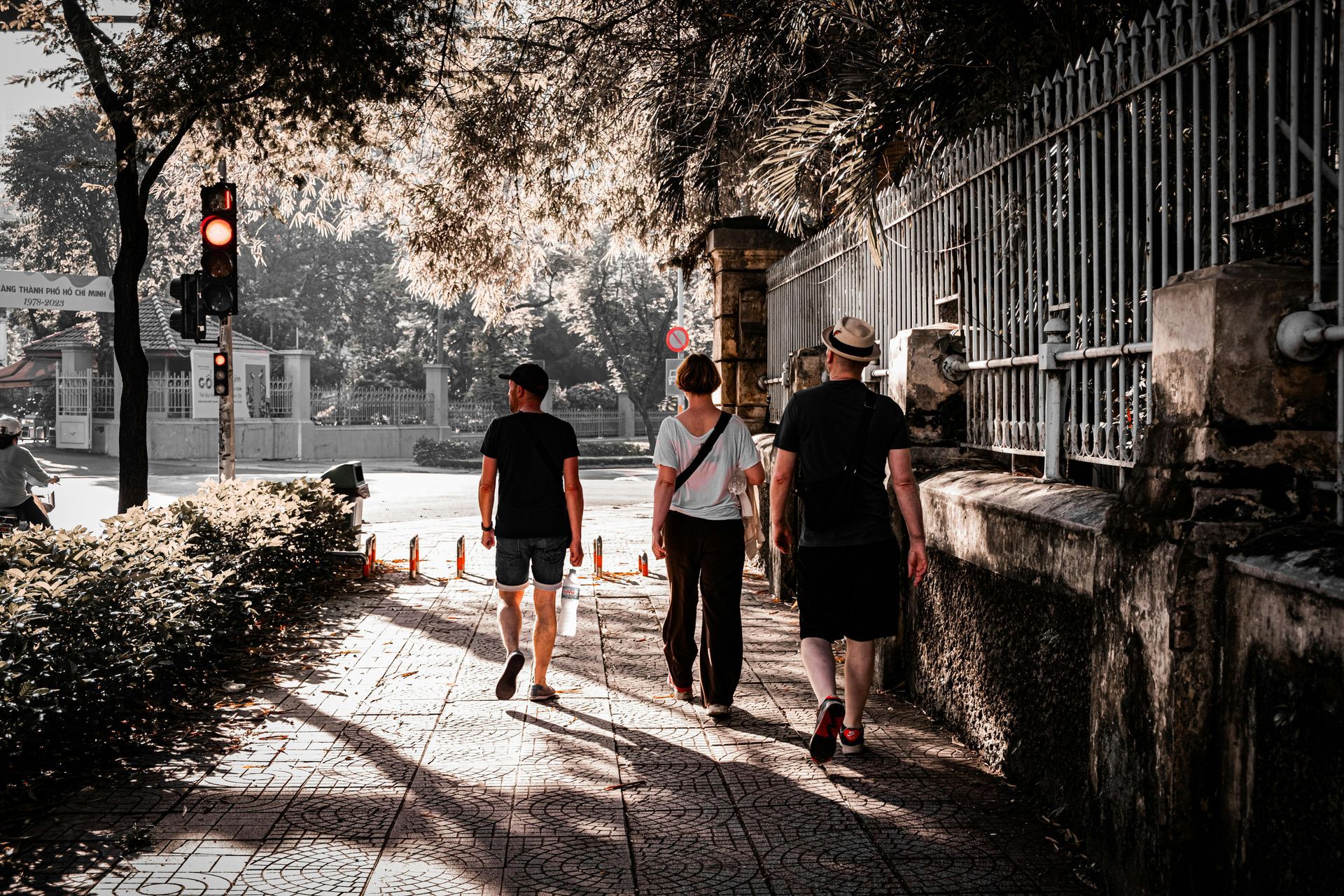The Energy Equation: How Movement, Sleep, and Stress Management Work Together
Energy is more than just a feeling—it's the wairua (spirit) that drives your whole being.
At Amokura Coaching, we understand that energy is more than just a feeling—it's the wairua (spirit) that drives your whole being. When your energy flows well, your tinana (body), hinengaro (mind), and wairua all work in harmony. But sometimes, it feels like your energy is running low, and life's demands feel overwhelming.
Perhaps you've noticed how some days you feel alert and motivated, ready to tackle whatever comes your way. Other days, even simple tasks feel challenging. You might wonder: what makes the difference? Is it just chance, or is there something more systematic at play?
The good news? Energy isn't magic—it's an equation made up of three evidence-based elements working together: movement, sleep, and stress management. When these three come into balance, your energy increases, your mood improves, and life feels more manageable.
Let's explore how these elements connect, why they work so effectively together, and how you can apply them in your daily life.
Movement: The Foundation of Vitality
Movement is like the waka (canoe) that carries your energy forward through your day. It doesn't have to be intense or time-consuming to be effective. Even moderate movement—like stretching, walking, or taking stairs instead of the elevator—gets your blood flowing and activates your body's natural energy systems.
When you move, your brain releases neurotransmitters—dopamine and serotonin—that improve mood and mental clarity. These aren't just "feel-good chemicals"—they're powerful neurological tools that enhance your cognitive function and emotional regulation.
Research shows that movement also reduces cortisol, the stress hormone that can leave you feeling tired despite being physically inactive. Even a 10-minute walk can lower cortisol levels and improve your ability to concentrate for hours afterward.
Movement isn't just about exercise or calorie burning—it's about honoring your tinana, maintaining strength and mobility, and supporting your body's natural energy production. Think of it as an investment in your physical and mental performance.
- Common obstacle: "I don't have time for exercise." Remember, movement doesn't require a gym membership or lengthy sessions. It can be as simple as parking further away, taking phone calls while standing, or doing bodyweight exercises while watching TV.
Simple Step:
- Stand up every hour, move your shoulders and neck, and take five deep breaths. Notice how your body feels before and after. Small, consistent actions create significant changes over time.
Sleep: The Critical Recovery Period
Sleep is when your body repairs itself, your mind processes information, and your systems reset for optimal performance. It's essential mahi (work) that happens behind the scenes to prepare you for tomorrow's challenges.
During sleep, your brain undergoes a crucial cleaning process. Cerebrospinal fluid flows through brain tissue, removing metabolic waste products that accumulate during waking hours. This natural detoxification is why you can go to bed feeling mentally foggy and wake up with clear thinking—when sleep quality is good.
Quality sleep balances your hormone production. Growth hormone repairs tissues, melatonin regulates your circadian rhythm, and cortisol levels naturally decrease, allowing your stress response system to recover.
Without adequate sleep, performance suffers across all areas. Your emotional regulation becomes compromised, decision-making abilities decline, and your usual coping strategies may feel less accessible.
At Amokura Coaching, we recommend establishing consistent sleep routines: dimming lights in the evening, reducing screen exposure before bed, and creating a comfortable sleep environment. Your body responds well to predictable patterns—consistency helps you achieve deeper, more restorative rest.
- Common obstacle: "My mind races when I try to sleep." This often happens when your hinengaro hasn't had time to process the day. Try a "mental download"—spend 10 minutes before your bedtime routine writing down tomorrow's tasks and today's thoughts, then consciously set them aside.
Simple Step:
- Maintain consistent sleep and wake times, even on weekends. Create a calm, dark sleeping environment—your bedroom should function as a recovery space, not an extension of your workspace.
Stress Management: Optimising Your Response System
Stress is like rough water conditions during your life's journey—it can disrupt your waka and drain your energy reserves. When stress becomes chronic, it interferes with sleep quality and reduces motivation for physical activity, creating a cycle that impacts overall performance.
Here's an important distinction: acute stress—like preparing for a presentation—can actually enhance focus and performance. The challenge arises when stress becomes chronic, running continuously in the background.
Chronic stress floods your system with cortisol and adrenaline, hormones designed for short-term situations. When these remain elevated long-term, they disrupt sleep cycles, suppress immune function, and can impair areas of the brain responsible for memory and emotional regulation.
Effective stress management isn't about eliminating all stress—it's about developing skills to navigate it skillfully. At Amokura Coaching, we use evidence-based approaches including mindfulness techniques, breathing exercises, and boundary setting to help calm your hinengaro and reconnect with your wairua. Regular practice of these skills can help you respond rather than react to challenging situations.
- Common obstacle: "I can't control the stress in my life." While you may not control external stressors, you have significant influence over your response to them. It's like learning to drive in different weather conditions—you can't control the weather, but you can develop the skills to navigate it safely.
Simple Step:
- When feeling overwhelmed, try "box breathing": inhale for 4 counts, hold for 4, exhale for 4, hold for 4. Repeat this pattern 4-6 times. This activates your parasympathetic nervous system—your body's natural relaxation response.
How These Three Work Together: The Science of Synergy
Movement, sleep, and stress management aren't independent elements—they are interconnected components in the kete (basket) of your wellbeing, each one supporting and strengthening the others in measurable ways.
Movement improves sleep quality:
Physical activity increases slow-wave sleep—the deepest, most restorative stage. It also helps regulate circadian rhythms, making it easier to feel naturally tired at appropriate times. Research shows that people who exercise regularly fall asleep 55% faster than sedentary individuals.
Quality sleep enhances stress resilience:
During REM sleep, your brain processes emotional experiences and strengthens neural pathways for better stress management. Well-rested people show 60% better emotional regulation and are significantly less likely to perceive neutral situations as threatening.
Stress management improves both movement and sleep:
When your stress response is balanced, your body produces optimal levels of energy-supporting hormones. You feel more motivated to be active, and your nervous system can transition into rest mode more easily at night.
When one element becomes imbalanced, the others are affected—like a three-legged table becoming unstable. When all three function well together, your energy flows consistently, supporting everything you want to accomplish.
Real Life, Real People
Consider *Sarah, a working mother who came to us feeling constantly exhausted. She was sleeping 7-8 hours but waking up tired, relying on multiple coffees throughout the day, and collapsing into bed each night feeling wired despite her fatigue.
Through our work together, we identified that high stress levels were preventing restorative sleep, even though she was in bed for adequate hours. We started with just 5 minutes of evening breathing exercises and a 10-minute morning walk with her children. Within two weeks, she noticed improved sleep quality.
Within a month, she had energy for afternoon activities she'd previously given up. The three elements had begun supporting each other naturally.
How We Support You at Amokura Coaching
We don't believe in quick fixes or universal solutions. Everyone's energy needs are unique. That's why we work alongside you with expertise and respect to:
- Identify movement that feels sustainable and enjoyable for your lifestyle, physical condition, and schedule. Whether you're recovering from injury, managing health conditions, or simply haven't been active recently, we meet you where you are.
- Develop sleep habits that work with your natural patterns and life circumstances. Shift workers, parents, and people with sleep challenges all need individualised approaches.
- Build practical stress management tools that integrate seamlessly into your daily routine. Not everyone connects with meditation, but everyone can find effective strategies for maintaining calm and focus.
Together, we create an approach to energy management that feels realistic, effective, and genuinely sustainable.
Take a Step Today
You don't need to change everything at once. Small, consistent improvements often create the most lasting results. Here are three practical steps to try right now:
- Take a 10-minute walk outside. Focus on your breathing, notice your surroundings, and pay attention to how your body feels during and after movement.
- Establish a consistent bedtime and create a 30-minute wind-down routine. This might include dimming lights, gentle stretching, or simply sitting quietly without screens.
- Practice intentional breathing when life feels demanding. Even three conscious breaths can shift your nervous system and remind your body that you're safe in the present moment.
Energy is your taonga (treasure)—a valuable resource to care for with consistency, patience, and respect for your individual needs.
Remember, sustainable energy isn't about pushing harder or doing more. It's about balance, consistency, and genuine self-care. When movement, sleep, and stress management work together effectively, your whole being is supported—not just physically, but emotionally, mentally, and spiritually.
If you'd like support in developing your own balanced approach, we're here to help. Let's work together to help you feel more energised, focused, and confident every day—not through forcing yourself into someone else's formula, but by discovering what truly works for your unique circumstances and goals.
*Name changed for privacy









